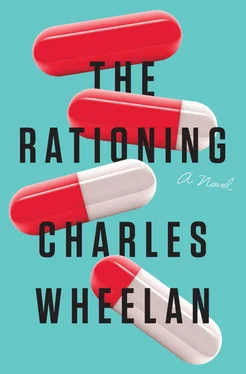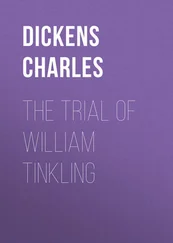I would see all of this play itself out—every single one of Giscard’s extreme personality traits—over the next thirty-six hours.
THE U.S. AMBASSADOR TO INDIA IS ONE OF THE UNSUNG heroes of the Outbreak. Early in the crisis, our request to the Indian government to “borrow” any excess Dormigen had been firmly rebuffed. The Indian Prime Minister was a prickly populist, keenly sensitive to being perceived as the junior partner in the U.S.-India relationship. He was facing an impending parliamentary election and feared that sending Dormigen to the U.S. would be perceived by the Indian masses as putting U.S. health interests ahead of India’s own massive challenges. Hence, the Indian Prime Minister had offered to sell Dormigen to the U.S. only for a ridiculous sum. Subsequent discussions had gone nowhere productive; State Department diplomats reckoned that India was not a likely source of Dormigen as long as: (1) the Indian Prime Minister was concerned primarily about his party’s electoral prospects; and (2) he believed that any assistance to the U.S. would be perceived by Indian voters as bad for India.
Once the Outbreak became public, however, American diplomats on the ground in New Delhi noticed a subtle undercurrent in Indian public opinion that presented an opportunity. It began with a newspaper column by a prominent journalist. If China is exploiting America’s desperate situation, the columnist asked, does this not represent an opportunity for India to transform its relationship with the United States? India and China, the world’s two most populous countries, had been eyeing each other warily for decades. They were each trying to lift hundreds of millions of people out of poverty, albeit with radically different approaches to governance and development. They had gone to war once, just a month-long conflict in 1962, but the border dispute that had precipitated the shooting remained unresolved. Three years before that, India had welcomed the Dalai Lama when he fled from Tibet; he has resided in northern India ever since—a constant source of irritation for Beijing. Over time, the India-China rivalry had morphed into an ideological battle: Democracy or autocracy? And, like two needy siblings competing for parental affection, each jockeyed on the world stage to gain a strategic advantage via its relationship with the United States. There was a strain of thinking in New Delhi—perhaps oversimplified but not necessarily incorrect—that China’s loss must be India’s gain. While China was being demonized in Washington for clumsily exploiting the crisis, would this not be a natural opportunity for India, the world’s largest democracy, to deepen its ties with the U.S., the world’s most powerful democracy?
These were the thoughts that Indian intellectuals had begun to bandy about. The Prime Minister was never confused with the intellectuals. He did, however, have a brilliant sense of which way the intellectual winds were blowing. The U.S. Ambassador to India, a former senator from New Hampshire, was a keen enough observer of Indian politics to spot an opportunity in all this. We should be thankful that the Ambassador was not one of those political hacks who make huge contributions to a presidential campaign and then find themselves ambassador to a country that they cannot find on a map. Rather, the Ambassador had started his career in the Foreign Service and had been a member of the Foreign Affairs Committee in the Senate. The President had offered him the post as a consolation after he was beaten unexpectedly in a Democratic primary. He knew politics. He knew diplomacy. And he understood the needs and wants of the Indian Prime Minister. As the South China Sea Agreement drama was unfolding, the Ambassador passed an urgent message along to the Secretary of State: If we play our cards right, India might be the solution here.
When the Secretary of State and the U.S. Ambassador were finally able to speak, shortly after Air Force One had touched down in Australia, the Ambassador laid out his thinking: “If we can create a political win for the Indian Prime Minister, he’ll give us whatever Dormigen we need.”
“He turned down our earlier inquiries without a second thought,” the Secretary of State said skeptically.
“That was then. This is now,” the Ambassador explained. “There are murmurings in the press and elsewhere that this could be India’s shining moment on the world stage, the perfect opportunity to poke a finger in China’s eye.”
“Do they have enough Dormigen?” the Secretary of State asked.
“Yes,” the Ambassador answered confidently. The Secretary of State did not ask how the Ambassador would know something like this. She assumed that the resident spooks in New Delhi had done their homework.
“Okay, then, I think we should pursue a conversation,” the Secretary of State said.
“Yes, well, there’s one caveat,” the Ambassador said.
“Of course there is. What?” the Secretary of State asked.
“The Prime Minister is going to have to think this is his idea. If we ask again for the Dormigen, we’re not going to get it. He needs to offer it to us. It has to be his shining idea, and Indian voters need to know that.”
“Really?” the Secretary of State asked. She was intolerant of the exigencies of politics in the best of times. Now, having slept little and facing a deadly deadline, the Secretary of State was even less patient with such silliness. “Really? We’re facing down a hundred thousand deaths, and he needs to feel this is his idea? Are we dealing with a teenager?”
The Ambassador laughed. “That would not be a bad guide for the negotiations. But if I’m being more charitable, I’d say that one does not become prime minister in a country of a billion people, many of them illiterate, without some rather coarse political calculations.”
“Okay, fine. How do we make this his idea?” the Secretary asked.
“I was hoping you would have a suggestion,” the Ambassador answered.
The Secretary of State relayed the conversation to the President, who seized on the possibility eagerly. “It can’t be too hard to feed this idea to the Prime Minister,” the President said. “I don’t care who gets the credit.”
“Washington is full of people who think they’ve come up with other people’s brilliant ideas,” the Strategist offered.
“Exactly,” the President agreed. “Can’t we do a poll, something that shows that Indian voters want to come to the rescue here?”
“There’s not enough time,” the Strategist said. “We need three or four days to do a decent poll. And that’s in the U.S.; India is even more complicated.”
“Give me something here,” the President said in exasperation. “I’m tired of people telling me what I can’t do.”
“Poll results, on the other hand—I could do that in about five minutes,” the Strategist said.
“What’s that supposed to mean?” the Secretary of State asked suspiciously.
“It means we create the results we want and leak them to an influential Indian news source,” the Strategist explained.
“Oh, for God’s sake, that’s exactly the kind of thing that will make people around the world even more paranoid about American meddling,” the Secretary of State said.
“Let’s worry about that next week, when people aren’t dying of Capellaviridae ,” the President said.
“With all due respect, sir, we should think very carefully—”
“I just did,” the President said sharply. “Make it happen. The two of you. I want the Indian Prime Minister to wake up tomorrow and think that his entire political future depends on shipping huge quantities of Dormigen to the United States. How you make that happen—that’s your job.”
Читать дальше












